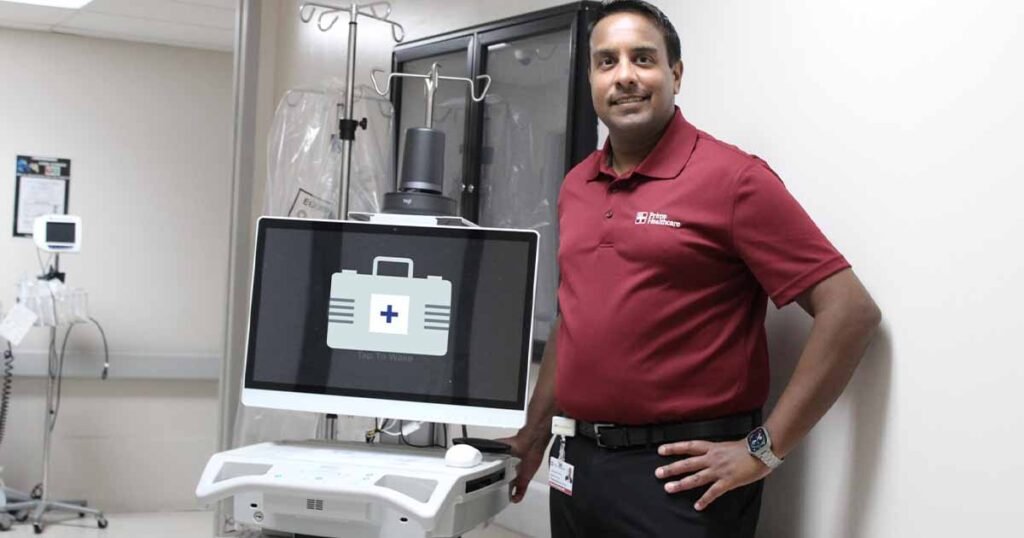Prime Healthcare, a leading healthcare system with 51 hospitals and over 360 outpatient locations across 14 states, is committed to providing high-quality care to its patients. With a focus on enhancing patient care in the emergency department, Prime Healthcare has implemented a telemedicine strategy to provide around-the-clock access to specialist consultations.
According to Harsha Gopinath, director of telemedicine services at Prime Healthcare, timely specialty input is crucial for accurate diagnoses, effective treatment plans, and improved patient outcomes. To further shrink the gap in access to critical services and reinforce their commitment to equitable care, Prime Healthcare turned to telehealth as a solution.
The health system saw an opportunity to use acute care telemedicine services to ensure patients in remote areas have prompt access to specialty care without the need to travel long distances. By leveraging telemedicine technology, Prime Healthcare aims to address staffing and specialty access challenges, particularly in rural hospitals.
Equum Medical, an acute care telehealth technology and services company, provided a platform that enables attending providers and nurses within a hospital to connect with specialist physicians through telemedicine devices. This integration allows specialists to review patient charts, tests, and imaging directly through the hospital’s EHR system.
The telemedicine platform was initially deployed for patients in the emergency department requiring psychiatric or neurological consultations. Telepsychiatry and tele-neurology services have facilitated more efficient processes and clinical evaluations, improving the overall quality of care.
Additionally, specialty coverage at Prime’s rural hospitals, including pulmonology/critical care, infectious disease, hematology/oncology, and nephrology, has enhanced the level of care provided to patients. The integration of the telemedicine platform with the Prime EHR system allows providers to have real-time access to patient information, leading to more informed decisions and improved patient outcomes.
Results achieved through the telemedicine initiative include improved patient throughput in the emergency department for behavioral health patients, primary stroke certification, reduced door-to-needle times for stroke patients, and increased specialist provider access at rural hospitals. These outcomes demonstrate the effectiveness of telemedicine in enhancing care delivery and addressing healthcare disparities.
Gopinath emphasized the importance of tracking telemedicine usage to understand its impact and identify areas for improvement. By monitoring consults, visits, and patient rounds, healthcare organizations can optimize their telemedicine services and ensure continued growth and success.
In conclusion, Prime Healthcare’s telemedicine strategy has proven to be a valuable tool in expanding access to specialty care, improving patient outcomes, and addressing healthcare challenges. By leveraging technology to connect providers with specialists and enhance care delivery, Prime Healthcare is setting a new standard for high-quality, equitable healthcare services.


